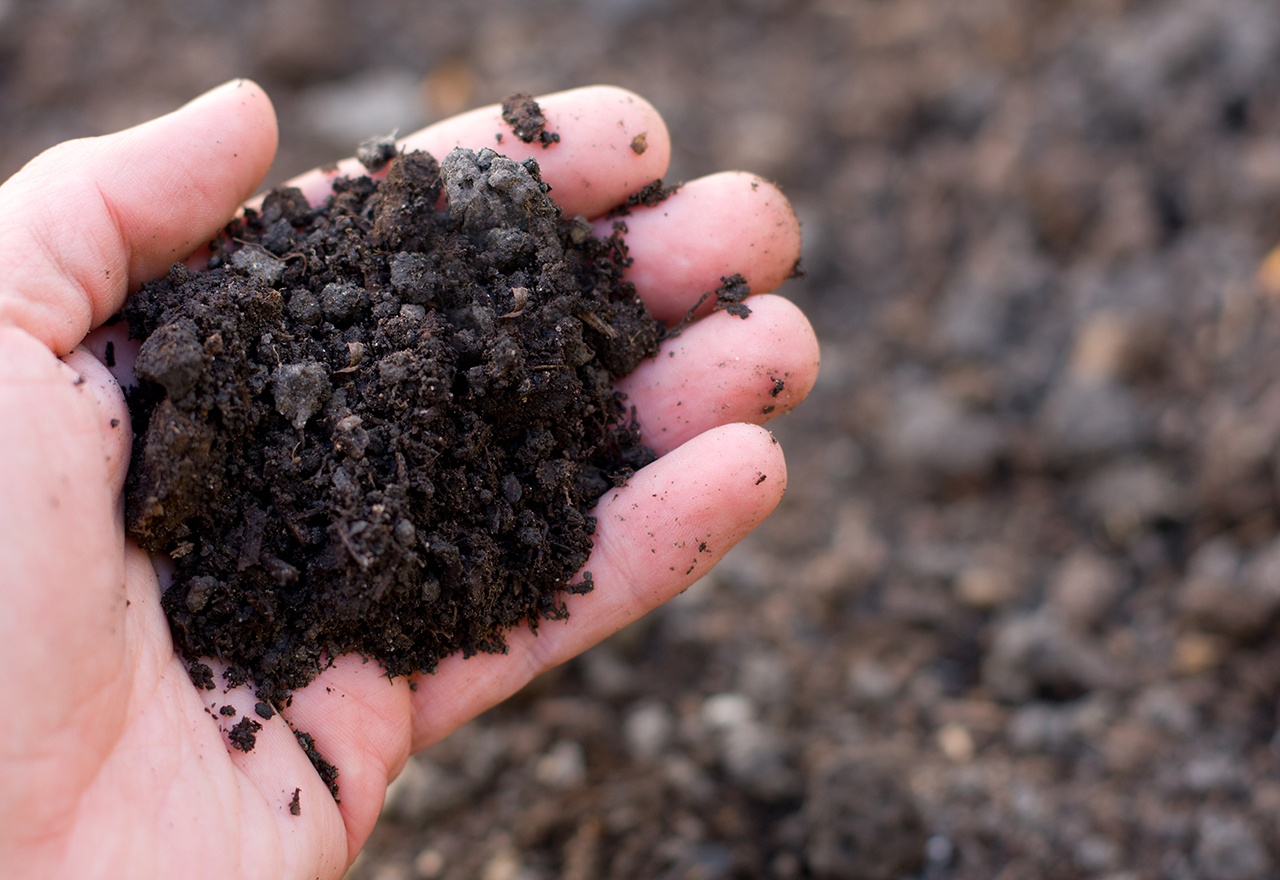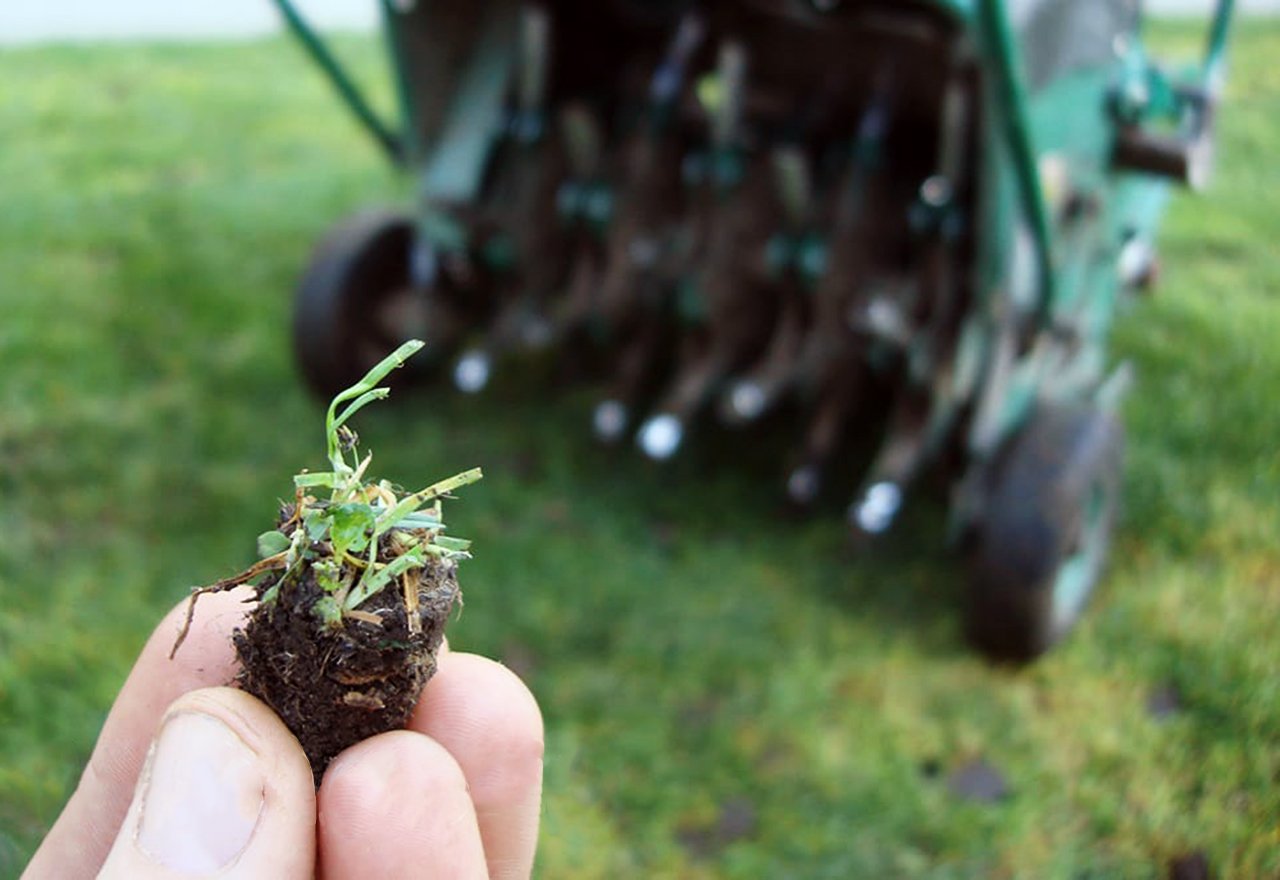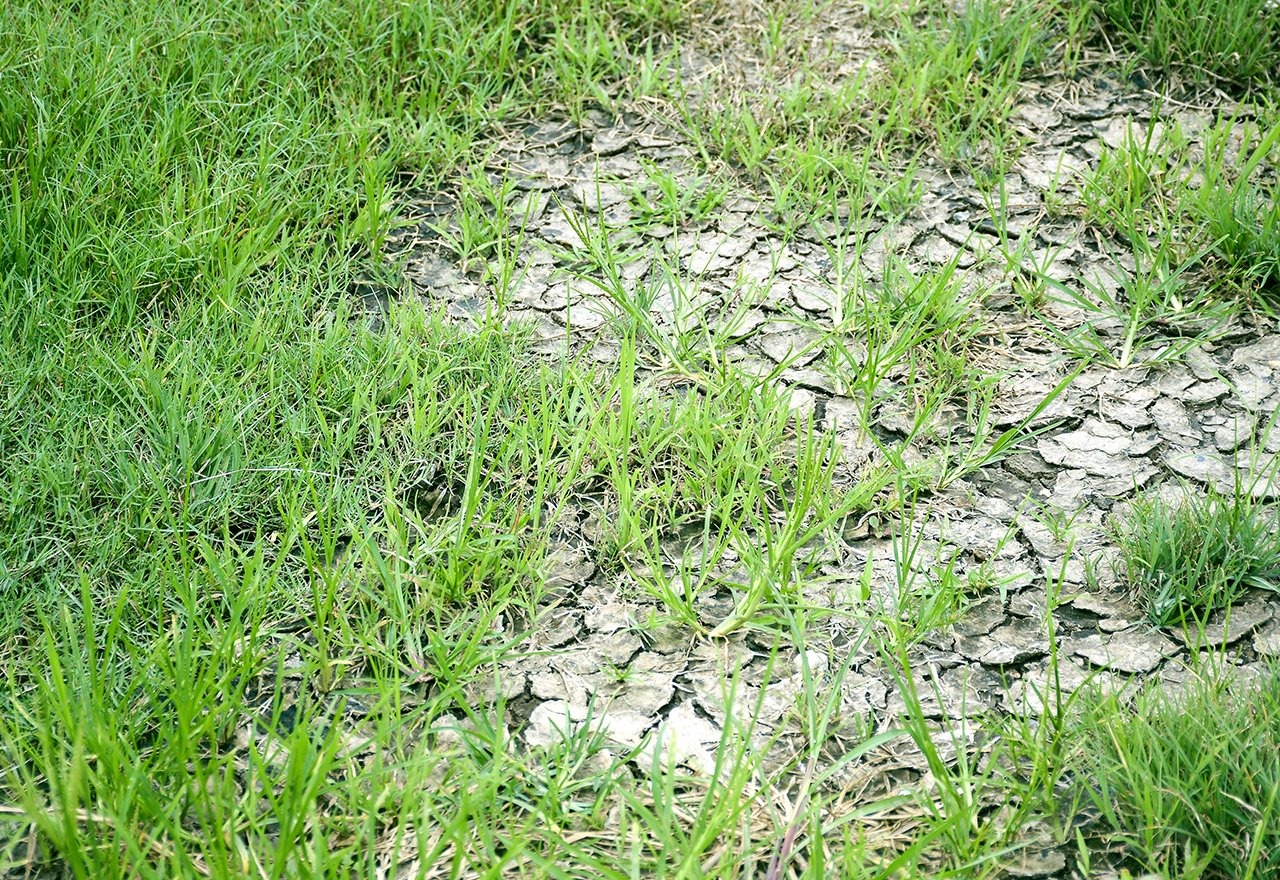Soil is Compacted and Stripped of Biology Needed for Plants to Grow

Soil is more than just the dirt under our feet that helps plants grow. Soil contains millions of tiny organisms including algae, bacteria, and fungus, as well as minerals, water, and other organic matter. The value of soil is often overlooked, but its importance to the quality of the plants it grows is obvious. If your grass and landscaping are lacking luster, you may have poor soil.
One reason for poor soil in new residential areas is the method of homebuilding. When a house is being constructed, contractors scrape off all the topsoil and stockpile it for future use. Then they dig out a basement and spread that soil around the yard. They drive heavy equipment through the yard as they build the house and bury rocks and debris that are in the way. When the house is complete, workers smooth over the new lawn area with a bulldozer and cover it with a little of that stockpiled topsoil, as well as some new soil. There are two problems with this process. First, the processed topsoil has pretty much lost all of the biology that was giving it any structure and would provide plants with the oxygen they need to grow. Second, the layer between the compacted subsoil, and the topsoil, is a hardpan that roots and water have difficulty penetrating.
Healthy soil in the Midwest should be crumbly, dark, and soft. You should be able to dig a foot to six inch deep hole in the soil easily. Additionally, if you fill that hole with water, it should drain within a few hours. Healthy soil pH is typically 6.0 to 7.0.
If you live in a home built in the last 10 years, we highly recommend having us test your soil. Good Nature Organic Lawn Care can administer a professional test and provide you with a Laboratory Soil Analysis, or you can order one through your Local University Extension Office. The lab that Good Nature uses was founded by the father of organic agriculture, William Albrecht. It is a full test that we review and make recommendations based on - specifically for your lawn. If you have another lab do the testing, we will do our best to work with it, but the test methods are different and often not as complete as the results we get from Brookside Laboratories.

You can bring your soil back! First, you should reintroduce good biology to your soil. This will both change the soil texture and also help add air to your soil: loosening and improving it at the same time. This will also increase your soil’s capacity to hold both nutrients and water. All of Good Nature’s treatments add organic matter. Many of our treatments add specific bacteria, fungi, and food for the good guys. The best way to start a soil rebuilding process is with a Laboratory Soil Analysis from Good Nature. We’ll use those results to make recommendations specifically for your lawn. If you are very low in organic matter, we might recommend a Compost Top Dressing. If you’re low in specific nutrients, we’ll recommend specific nutrient supplementation.
Secondly, you can help the soil and grass by doing Core Aeration at least every Fall. Using Liquid Aeration in the Spring and Summer will also help to loosen the soil and encourage grass and roots to go deeper. Adding pore space in the soil will encourage more microorganisms, as well as the larger biota, such as worms and insects.
Sometimes, you may want to add clay or sand to your soil to change its structure. You may also want to use an additive to change the pH of your soil. Lime adds calcium and will raise the pH. To lower the pH of your soil, elemental sulfur, or a sulfate containing product will help. Gypsum can add calcium and sulfur without affecting the soil pH. Fully research these options and know your soil content before committing to the process, or just have Good Nature handle it for you.
Caring for your lawn organically is key to keeping your soil healthy. Synthetic fertilizers and pesticides can kill off the very biology that will help improve your soil, so try to minimize their use. Fertilize organically, add beneficial soil biology that will improve the soil and naturally decompose thatch. Mowing your grass high so that the grass roots grow deeply will also feed your soil. We do not recommend synthetic fertilizers, which will only stay in the soil a short time and will act quickly and burn out. Organic fertilizers (as in, containing living material, not an organic certification) will feed the microbes in your soil and will release nutrients slowly.
One of the most important things as a homeowner that you can do for your soil is to preserve it. When you’re doing any construction or lawn and garden renovation, do not let the soil remain “open.” Cover it with straw or add barriers around the construction area to reduce erosion of valuable topsoil.
